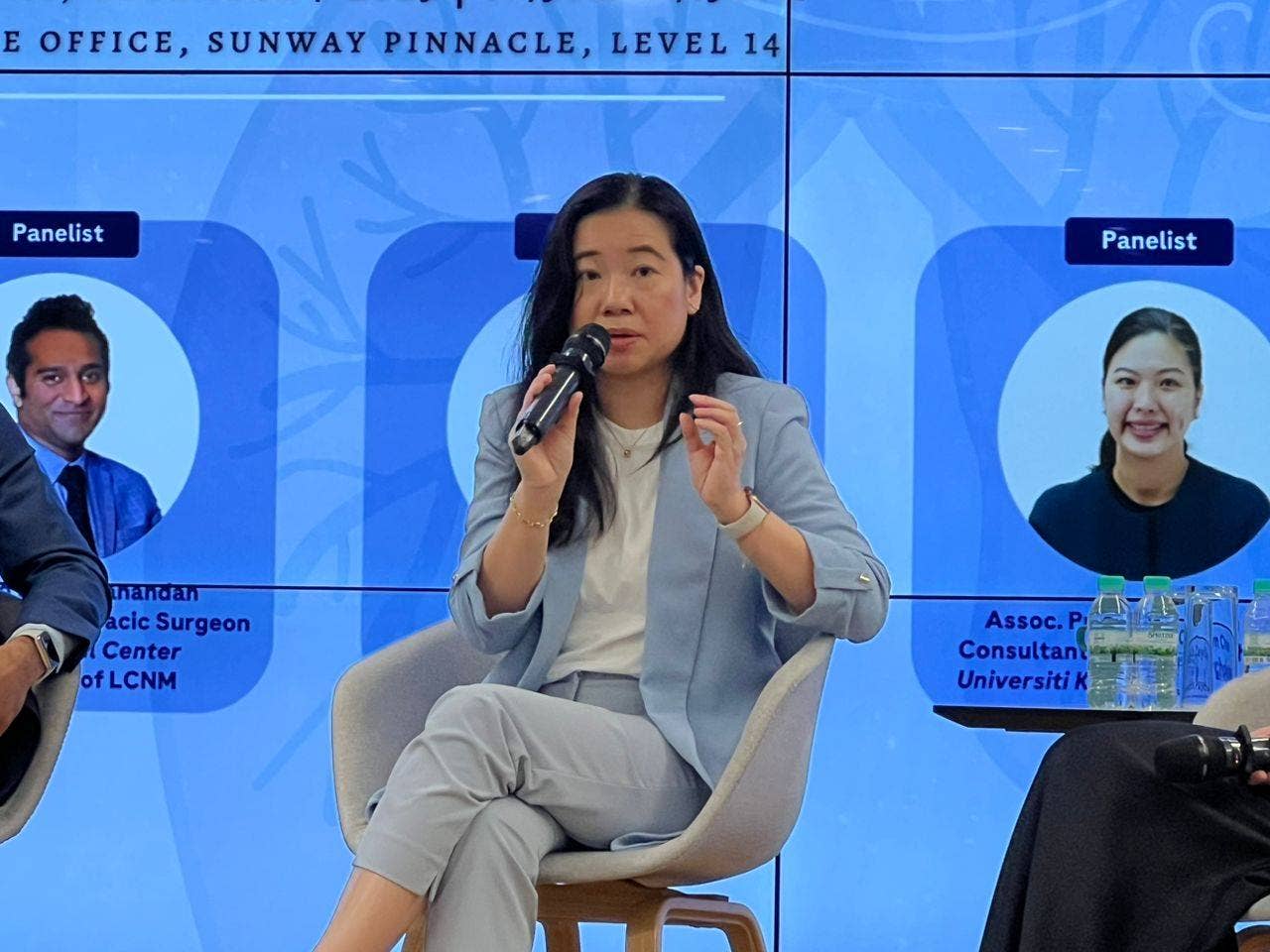Expert advocates family-centric approach to women's cancer treatment

SHAH ALAM - Sunway Medical Centre Consultant Clinical Oncologist Dr Jennifer Leong Siew Mooi highlights the challenges faced by women diagnosed with lung cancer and the importance of a comprehensive, family-centric approach to their treatment.
Speaking at the 'A Breath for Fresh Hope' forum held in Roche Malaysia last Thursday, Dr Jennifer said that women often prioritise the well-being of their families and tend to put their health on the back burner.
She said that many women were being diagnosed with advanced lung cancer and the news often comes as a shock to them.
"The fact that women often put priorities among work and family, health sometimes takes a back seat.
"I have many women patients that are diagnosed with advanced lung cancer in recent months, it comes as a shock to them that they have lung cancer because lung cancer is often stigmatised with tobacco smoking.
“They (women) don't smoke, they live a relatively healthy life, healthy diet, they exercise, and most of them are working, having young families, so all of a sudden they get diagnosed with advanced lung cancer," she said.
Addressing the stigma attached to lung cancer, Dr Jennifer stressed the need to allow women time to digest the diagnosis.
She pointed out that the unwarranted guilt some women feel, coupled with the financial and physical burden of cancer treatment, could be overwhelming.
"Women are used to being the caretaker, so when they get such disease and they need help from the family, there's often an unwritten guilt that ‘you know, I'm going to burden them’.
"Because cancer treatment is expensive, so it's not just a physical burden, it's also a financial burden, having to pay for treatment," she added.
However, Dr Jennifer advocated a shift in perspective and urged women to set their health as a priority.
She said that women were often motivated to undergo treatment not just for themselves but for their families.
"A lot of time women are motivated to partake in the treatment, not just for themselves but they do it for their family.
"It goes the same with genetic testing for breast and ovarian cancer. They (women) will do it because it may have an impact on their daughter.
"If they have a genetic mutation, their daughter may have it, and they don't want their daughter to have advanced cancer when it's detected.
“Many women go through treatment because they want to get better for the family," she reasoned.
Recognising the importance of involving families in the supportive care process, Dr Jennifer emphasised the collaborative nature of treatment and encouraged women to focus on regaining their health to normalise their lives.
"We don't want cancer patients to be stigmatised. We want them to normalise their life, go for holidays, spend the time they have with their family in a meaningful way.
"Hence the treatment also need not be detrimental. We don't want to have treatment that puts them in bed most of the time," she said.











